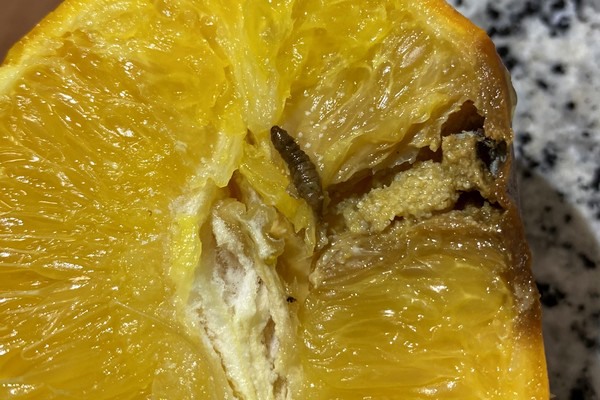The data of the European Commission's Europhyt-Traces registry for November included an interception of a shipment of pomegranates from Morocco with false moth (Thaumatotibia leucotreta). Intercitrus has confirmed that this rejection occurred in the Port of Almeria, which means it was the Spanish phytosanitary health service (dependent on the Ministry of Agriculture, MAP) that detected the plague and paralyzed the entry of the cargo.
If the affected shipment had entered the country and been unloaded in a warehouse in Almeria, it would have put at risk the production of nearby mandarins, oranges, grapefruits, pomegranates, and all the fruit trees that host this disease, such as avocado, vine, peach, nectarine or mango; as well as some vegetables, such as peppers and aubergines. Given the severity of the detection, Intercitrus requires the European authorities to send inspectors to confirm the extent of the possible presence of T. leucotreta in Morocco.
"This interception should put on alert the entire Spanish and European fruit and vegetable sector. If the suspicion is ratified, the EC should rethink its policy against this quarantine pest as it is one of the 20 pests that has the greatest economic, environmental, and social impact," stated Inmaculada Sanfeliu, president of the Spanish Orange and Mandarin Inter-branch Association.
Morocco is currently Spain's leading non-community supplier of fruits and vegetables, with 339,476 tons from January to September of this year, and the EU's fifth-biggest supplier in volume in the same period.

If T. leucotreta is detected in Morocco, "the EU would find that the first three non-European suppliers of clementines and mandarins are all affected by this pest, so it would have to be forced - as we have been claiming since the beginning - to also impose cold treatment on mandarins from these three countries (Morocco, South Africa, and Israel), not only on oranges originating from areas affected by this pest, as is currently the case," Sanfeliu insisted.
If this dangerous pest - which affects the entire fruit and vegetable sector - were to enter Spain, it would be almost impossible to eradicate it. According to the Contingency Plan written by the MAPA in 2020: "The larvae are not affected by non-systemic insecticides (those that do not penetrate the plant) because they spend most of their lives inside the fruits. In addition, the pest has developed resistance to systemic (those that do) and non-systemic insecticides commonly used."
For more information:
Intercitrus
C/ Guillém de Castro, 65 - 1.º Puerta 2
46008 - Valencia
Tf.: 96-194.38.47
intercitrus@intercitrus.org
